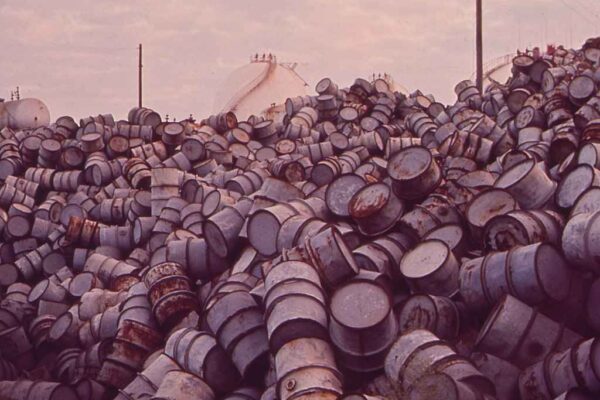ACLU of Louisiana urges U.S. Army Corps of Engineers to Reject Permit for New Grain Terminal in St. John the Baptist Parish
NEW ORLEANS – With international human rights experts sounding the alarm over environmental racism in Louisiana’s Cancer Alley, the ACLU of Louisiana is joining other grassroots organizations in opposing proposed construction of a new grain terminal in St. John the Baptist Parish. The proposed Greenfield Louisiana project, which would involve clearing land and building a grain elevator, poses life threatening health and safety consequences to residents of an area so polluted by oil refineries, petrochemical plants, and waste dumps that it is now known as “Cancer Alley.”
This statement can be attributed to ACLU of Louisiana Executive Director Alanah Odoms.
“We are deeply disturbed to learn about this plan to further industrialize an area of Louisiana that has been disproportionately impacted by air pollution for decades. The predominantly Black residents of Cancer Alley, who are descendants of enslaved people who once worked that very land, have long suffered the impacts of environmental racism. Since the Reconstruction era, they’ve had their land poisoned, their water polluted, and their rights trampled by the petrochemical industry. Instead of rubber-stamping further development by polluters, state and local officials should be working to combat environmental racism and address the harms these communities have suffered.
“Findings in a recent research report conducted by the United Nations human rights officials confirm that this stretch of our state is one of the most heavily polluted areas in the United States and the risk of cancer from air pollution in the corridor is 95% higher than in most of the country. We cannot afford any more harmful emissions released throughout these parishes. For the health and safety of all Louisianians, we urge the U.S. Army Corps of Engineers to reject this permit.”
Grain elevators pose life-threatening health and safety consequences, including fires and explosions from grain dust accumulation, suffocation from engulfment and entrapment in grain bins, and crushing injuries from grain-handling equipment. If this facility is developed, workers and community members will also be exposed to even more particulate air pollution, which can lodge deep in the lungs and cause serious health problems.
Last summer, the ACLU of Louisiana opposed the construction of a Formosa petrochemical plant in St. James Parish, asserting the project would exacerbate environmental racism and violate federal laws that require a thorough environmental impact assessment prior to construction. The U.S. Army Corps of Engineers suspended the permit for the project in November.
###
Stay Informed
Sign up to be the first to hear about how to take action.
By completing this form, I agree to receive occasional emails per the terms of the ACLU’s privacy statement.
By completing this form, I agree to receive occasional emails per the terms of the ACLU’s privacy statement.

